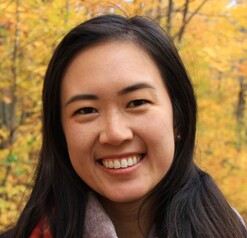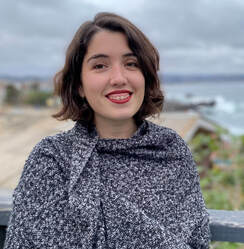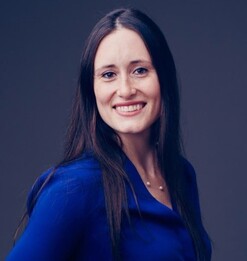Doctoral Students at McGill University

Chinchin Wang (Ian Shrier, Co-Advisor) [2020]
Chinchin obtained a BMSc in Biochemistry from Western University and an MSc in Epidemiology from McGill University. Her PhD is focused on developing and applying causal inference methods to sports medicine, specifically determining how much physical activity can be done while minimizing risk of injury. Her research is funded by an FRQS Doctoral Award. She also works as an analyst for the Public Health Agency of Canada conducting physical activity and sedentary behaviour surveillance. In her spare time, she enjoys staying active through running, biking, rock climbing, and yoga.
Chinchin obtained a BMSc in Biochemistry from Western University and an MSc in Epidemiology from McGill University. Her PhD is focused on developing and applying causal inference methods to sports medicine, specifically determining how much physical activity can be done while minimizing risk of injury. Her research is funded by an FRQS Doctoral Award. She also works as an analyst for the Public Health Agency of Canada conducting physical activity and sedentary behaviour surveillance. In her spare time, she enjoys staying active through running, biking, rock climbing, and yoga.

Doris Duran Napolitano (Belinda Nicolau, Co-Advisor) [2020]
Doris Durán is a Ph.D. student in Epidemiology at McGill University. She received her DDS in Finis Terrae University and her MSc in Public Health at the University of Chile. She is an adjunct researcher at the Centre of Population Health in San Sebastián University in Chile and an Oral Public Health instructor at University of Chile. Previously her work focused on health policies, specifically in cancer, from a social epidemiology framework. She is currently working on Head and Neck cancer mortality and evaluating the impact of the Chilean health reform on breast, stomach, colorectal, and gallbladder cancer. Her PhD thesis will focus on vital statistics methods for tracking cause-specific mortality, especially during the COVID-19 pandemic.
Doris Durán is a Ph.D. student in Epidemiology at McGill University. She received her DDS in Finis Terrae University and her MSc in Public Health at the University of Chile. She is an adjunct researcher at the Centre of Population Health in San Sebastián University in Chile and an Oral Public Health instructor at University of Chile. Previously her work focused on health policies, specifically in cancer, from a social epidemiology framework. She is currently working on Head and Neck cancer mortality and evaluating the impact of the Chilean health reform on breast, stomach, colorectal, and gallbladder cancer. Her PhD thesis will focus on vital statistics methods for tracking cause-specific mortality, especially during the COVID-19 pandemic.

Juwel Rana (Scott Weichenthal, Co-Advisor) [2021]
Juwel Rana is a PhD student in Epidemiology at McGill Epidemiology, focused on machine learning, causal inference, epidemiologic methods, and environmental epidemiology. He has studied previously at the Ecole des hautes études en santé publique (2018-2019), The University of Sheffield (2017-2018) and The University of Dhaka (2012-2014).
His PhD thesis will be a causal analysis of air pollution data in Canada with a focus on mixtures.
Juwel Rana is a PhD student in Epidemiology at McGill Epidemiology, focused on machine learning, causal inference, epidemiologic methods, and environmental epidemiology. He has studied previously at the Ecole des hautes études en santé publique (2018-2019), The University of Sheffield (2017-2018) and The University of Dhaka (2012-2014).
His PhD thesis will be a causal analysis of air pollution data in Canada with a focus on mixtures.

Céline Goulart (Mabel Carabali, Co-Advisor) [2022]
Céline has an MPH from University of Toronto (2018) and is a current PhD student in Epidemiology at McGill. Her thesis will focus on the effect of inequalities on the risk and severity of Zika virus infection and congenital Zika syndrome in 20 Zika-endemic countries and territories. She plans to investigate ethnic and racial inequalities in the disease, and will assess the presence and magnitude of social inequalities, identifying which socioeconomic factors contribute the most to these inequalities. She will also evaluate teh extent to which misclassification of infection or the congenital syndrome have impacted Zika surveillance across countries, studies and racial groups.
Céline has an MPH from University of Toronto (2018) and is a current PhD student in Epidemiology at McGill. Her thesis will focus on the effect of inequalities on the risk and severity of Zika virus infection and congenital Zika syndrome in 20 Zika-endemic countries and territories. She plans to investigate ethnic and racial inequalities in the disease, and will assess the presence and magnitude of social inequalities, identifying which socioeconomic factors contribute the most to these inequalities. She will also evaluate teh extent to which misclassification of infection or the congenital syndrome have impacted Zika surveillance across countries, studies and racial groups.